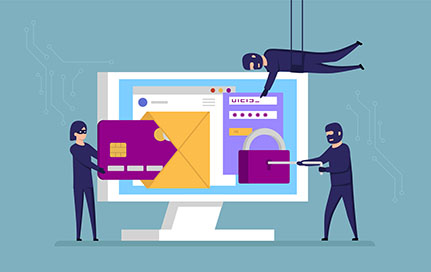| How to Find Out If You're a Victim of Identity Theft |
| By Barbara Pronin |
 Identity theft has become a major problem in recent years. If someone obtains your name, date of birth and Social Security Number, that information can be used for all sorts of illegal purposes. Here are some signs that you may be a victim of identity theft. Identity theft has become a major problem in recent years. If someone obtains your name, date of birth and Social Security Number, that information can be used for all sorts of illegal purposes. Here are some signs that you may be a victim of identity theft.
Unauthorized Transactions
If your identity has been stolen, you may notice that money was withdrawn from your bank account, transferred to a different account or used to pay bills without your authorization. You may also see credit card charges for purchases you didn’t make.
Attempts to Collect Debt
You may receive calls or letters from debt collectors about bills that aren’t yours. It may be a mistake (for example, someone with the same name may have made the charge) but it’s also possible that someone stole your identity and created a fraudulent account.
Problems Borrowing Money
If a criminal opened one or more accounts in your name, your credit score may have taken a hit. If you apply for a credit card or loan and get denied, even though you have good credit and meet the other requirements, check your credit report for unauthorized accounts.
Trouble Filing Your Taxes
You may attempt to file a tax return and receive a notification stating that a return has already been filed in your name. Someone may have stolen your identity and submitted a fake return to get your refund.
Surprise Charges for Healthcare
Identity thieves aren’t always after money. Sometimes they want access to healthcare. If you’re a victim, you may receive bills from medical providers for care you didn’t receive, or your explanation of benefits may show that your insurance company paid claims for hospital visits you never made.
Notification Regarding a Data Breach
Hackers who carry out data breaches can obtain personally identifiable information on millions of people at once. If a data breach is detected, potential victims should be notified. If you receive a letter stating that your personally identifiable information may have been compromised, follow any instructions that are given.
How to Avoid Becoming a Victim
Check your credit reports regularly. If you notice any accounts you didn’t open, contact the credit bureaus. Closely monitor your bank and credit card statements and question any transactions that don’t look familiar.
Be careful about what you share online. Cyber criminals can gather information from multiple sources and put together enough pieces to steal someone’s identity. Beware of unsolicited email requesting personal or financial information or asking you to click on a link. Never use public Wi-Fi for financial transactions. Don’t throw away papers with personal information unless you have shredded them first.
What to Do If You Think Your Identity Has Been Stolen
If you believe you are a victim of identity theft, file reports with the Federal Trade Commission and your local police department. Consider freezing your credit report or setting up a fraud alert to prevent criminals from opening fraudulent accounts.
Adapted from an article published by RISMedia.
This material is meant for general illustration and/or informational purposes only. Although the information has been gathered from sources believed to be reliable, no representation is made as to its accuracy. This material is not intended to be construed as legal, tax or investment advice. You are encouraged to consult your legal, tax or investment professional for specific advice.
Click on any icon below to share this article:
RISMedia welcomes your questions and comments. Send your e-mail to: realestatemagazinefeedback@rismedia.com.
Copyright© 2024 RISMedia, The Leader in Real Estate Information Systems and Real Estate News. All Rights Reserved. This material may not be republished without permission.
|
|